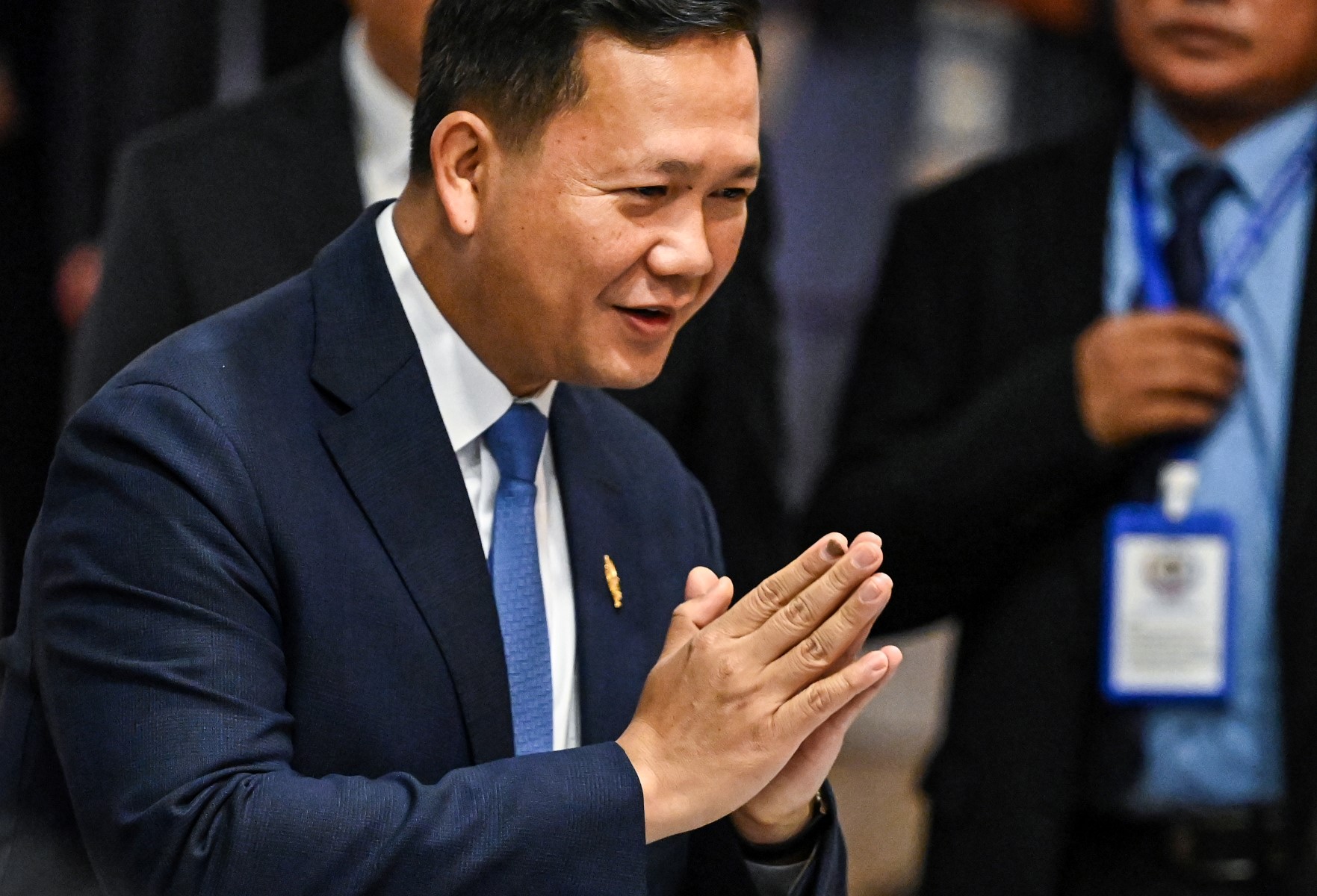At A Glance
- Hun Manet told lawmakers after the vote: "Today is a historical day for Cambodia."

Cambodia's Prime Minister-designate Hun Manet (C) arrives to attend a parliamentary meeting at the National Assembly building in Phnom Penh on August 22, 2023. (AFP)
PHNOM PENH, Cambodia -- Cambodia's parliament on Tuesday elected long-time ruler Hun Sen's eldest son as the new prime minister, sealing a dynastic handover of power after last month's one-sided election.
Heng Samrin, the lawmaker who chaired the meeting, announced that Hun Manet was elected unanimously.
Hun Sen's Cambodian People's Party (CPP) won all but five seats in the lower house in July polls that were widely decried as a sham after the main opposition party was barred from running.
Hun Manet told lawmakers after the vote: "Today is a historical day for Cambodia."
Days after the landslide victory, Hun Sen -- one of the world's longest-serving leaders -- announced he was stepping down and handing power to Hun Manet after nearly four decades of iron-fisted rule.
The Cambodian king -- who holds a largely symbolic role -- convened parliament on Monday, paving the way for lawmakers to elect four-star general Hun Manet, 45, as the country's new leader on Tuesday.
Hun Manet's new government includes a number of his relatives and several children of Hun Sen's allies in top jobs.
Hun Sen's youngest son Hun Many will become the civil service minister and his nephew Neth Savoeun, currently the powerful national police chief, will be a deputy prime minister.
The sons of the current interior and defense ministers will take over their fathers' posts, according to a draft list of the new cabinet members seen by AFP.
Having come to power in 1985, Hun Sen helped modernize a country devastated by civil war and genocide, although critics say his rule has also been marked by environmental destruction, entrenched graft and the elimination of nearly all political rivals.
The United States, United Nations and European Union have condemned last month's polls as neither free nor fair.
Hun Sen rejected those allegations and said his handover, a dynastic succession compared by some critics to North Korea, was being done to maintain peace and avoid "bloodshed" should he die in office.
He has also warned that should Hun Manet's life be seriously endangered, he would return as prime minister.
Despite being educated in Britain and the United States, Hun Manet has shown few signs he will follow a more liberal path than his father.
A member of the ruling party's powerful permanent committee, he has been the Royal Cambodian Army's commander since 2018.
Hun Manet has also met some world leaders, including President Xi Jinping of China, Cambodia's main ally and a significant benefactor.
Sebastian Strangio, author of "Hun Sen's Cambodia", said little was known about how Hun Manet will rule.
"His public comments have offered a vague melange of management speak and promises to uphold his father's legacy, in which it is very hard to determine any distinctive national vision," Strangio told AFP.
Hun Manet's decisions will be dictated by the political system, not the other way around, Strangio said.
Hun Sen is expected to become president of the Senate early next year and acting head of state when the king is overseas.
He has publicly announced that he would still dominate the country's politics and serve in other positions until at least 2033.